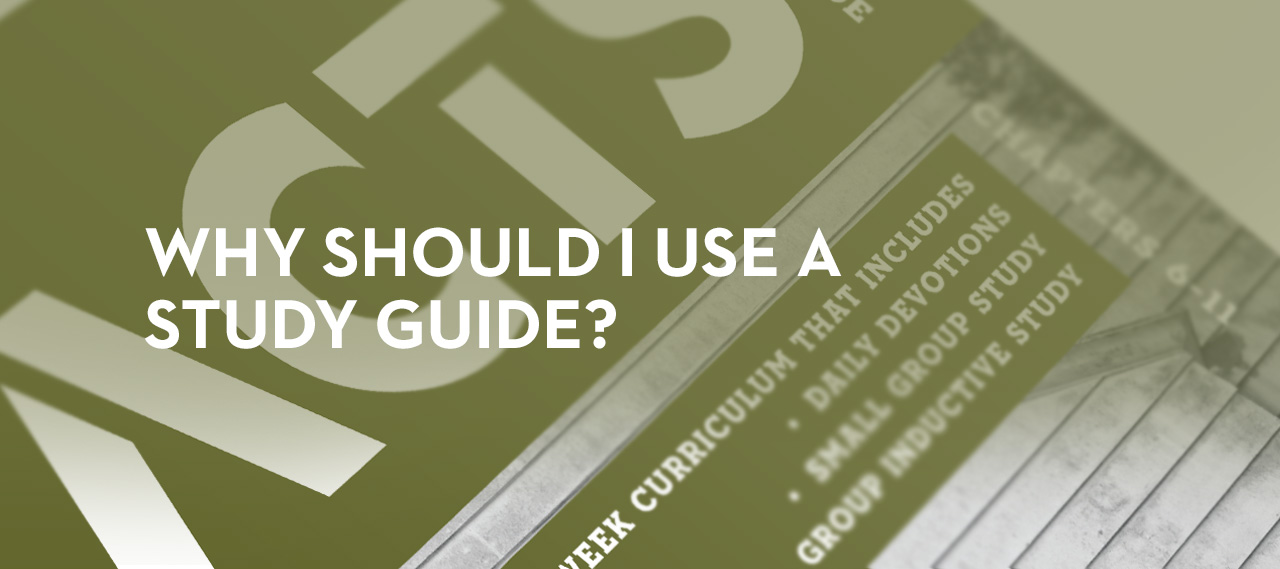Why should you use a study guide? The honest answer is maybe you shouldn’t. If you don’t approach it the right way, you may be wasting your time.
The purpose of a study guide is different from those of CliffsNotes. CliffsNotes allow you to slack off and get a summary of what you missed. A study guide is intended to supplement the reading and pursuit that you are already taking. As leaders, our goal should always be to clarify our convictions and then passionately communicate them to the people around us. For example, here at Mars Hill Church our mission is to make disciples and plant churches, but our convictions lead us to how we do that.
For instance, Community Groups is not just a program that we run but rather a conviction that we have. We believe that God created us as image bearers of himself. Therefore our conviction is that we should live in community the way God the Father, Son, and Holy Spirit live in community. We learn what our action is by passionately living out our convictions. A study guide is intended to move people into a deeper understanding of God’s Word.
“So God created man in his own image,
in the image of God he created him;
male and female he created them.”
So now that we have laid the foundation for the purpose of a study guide let’s talk about how we can use it. I broke this down into four steps: question, read, reflect, and share.
Question
Knowing what questions you have about the text is helpful as you begin reading a study guide. As you read Genesis 1:27, one of your questions may be, “What does it mean to bear God’s image?” or, “How should I live as an image bearer of God?” These questions allow us to search the guide for answers and push us to read with more intentionality.
Read
This is obvious, but unfortunately it needs to be stated. A study guide is only useful if people take time to read it. A study guide may take (hundreds of) hours to compile by numerous people, but if no one reads it then all the potential for deeper understanding is bound up inside the cover. When we have already taken time to ask some questions, we are then able to read with an eye for answers. As humans, we don’t just passively consume information but rather interact with it, allowing us to change and grow.
Also note that the Bible should always be the main course of our reading diet. Our time reading study guides and other resources should always be secondary to the nourishment we gain from God’s Word. If we want to learn and grow, it is best to go to the creator than the created, so be sure to read the Bible first.
Reflect
This is a very important step that people rarely take the time to do. Taking time to reflect on your questions after reading allows you the opportunity to clarify your convictions. As I stated before, we don’t just consume information but rather interact with it and form convictions. When we don’t pause to reflect, we miss an incredible opportunity for the Holy Spirit to work in our hearts and change our lives. Convictions are not something that should be taken lightly, nor will they necessarily be formed quickly, so take time to ponder what you read.
Share
This is where we find out if we really believe what we learned. Sharing thoughts with people you know is one level of belief, but sharing with those you don’t know is on a whole different level. For many, this is the hardest part because it requires us to open ourselves up to other people’s opinions and admit we could be wrong. This is also the difference between a leader and a follower. We are only able to confidently share what we confidently believe, therefore leaders must know what they believe. Without sharing our beliefs with others, we will never test our convictions.
I would urge you to ask questions, read purposefully, reflect on what you learned, and then share those lessons with others.
Mars Hill Church provides study guides for your personal development as you follow along with our sermon series. Pick up the latest study guide as we start the second part of Acts and use the tips above to help in your personal study and quiet time, at home with your family, or in your community group.















